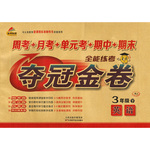题目内容
________ heavily outside, we were beginning to worry about him.
[ ]
A.It was late and raining
B.It being late and raining
C.Being late and raining
D.It was being late and rained
答案:B

练习册系列答案
 夺冠金卷全能练考系列答案
夺冠金卷全能练考系列答案
相关题目
题目内容
________ heavily outside, we were beginning to worry about him.
A.It was late and raining
B.It being late and raining
C.Being late and raining
D.It was being late and rained

 夺冠金卷全能练考系列答案
夺冠金卷全能练考系列答案